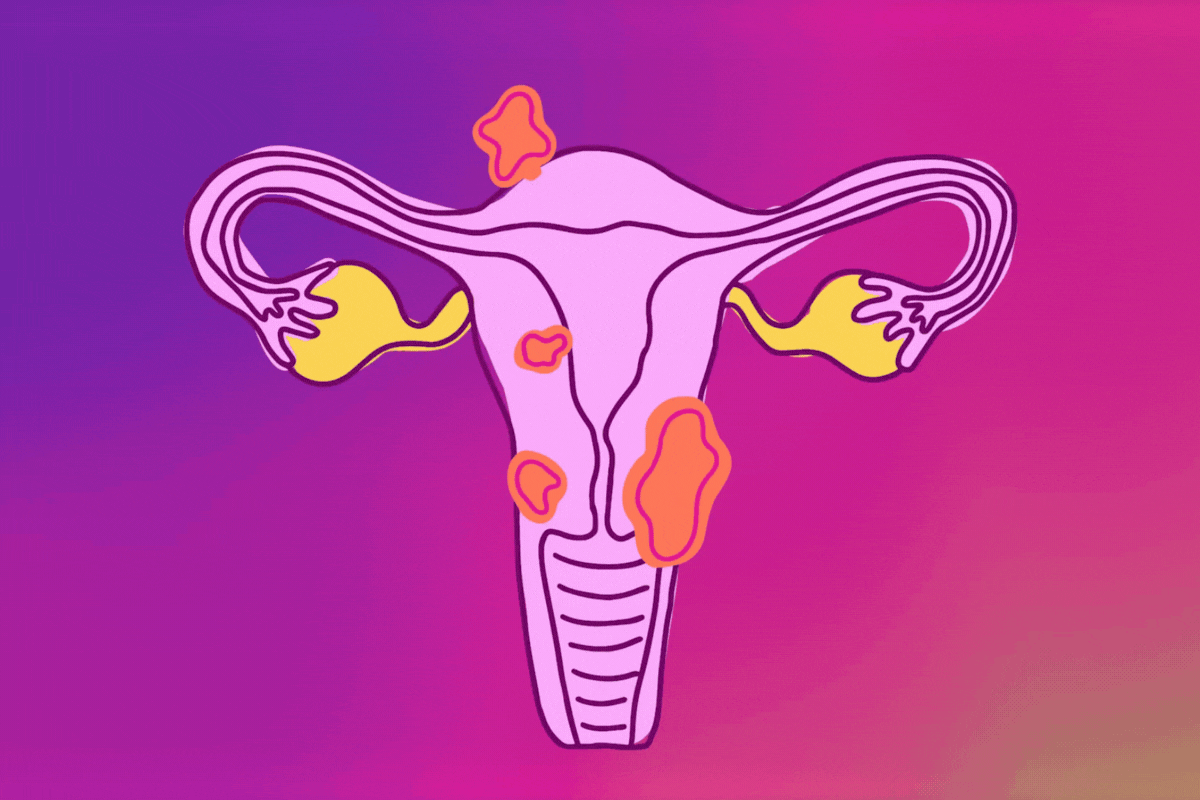Heavy menstrual bleeding affects about 1 in 5 women in the United States.
It’s one of the most common problems women report to their healthcare providers — and many more cases may be unreported because women don’t realize anything is wrong.
Many women assume heavy bleeding is normal, but it could be a symptom of uterine fibroids.
Uterine fibroids are:
- Muscular growths of the uterus
- Benign (non-cancerous)
- Linked to health problems such as pelvic pain, anemia (low iron) and infertility
Approximately 8 out of 10 women will have fibroids at some point in their lives.
Black women are 3x more likely than white women to develop fibroids in the U.S.
Heavy vs. normal bleeding
Your period is considered abnormally heavy if it lasts longer than five days (not including spotting) and you lose 80 milliliters (about ⅓ cup) of blood every month.
1 hour
3 hours
>3 hours
Heavy Flow
Soaking through 1 or more pad or tampon every 1-2 hours
Moderate Flow
Soaking more than 1 pad or tampon in 3 hours
Mid/Light Flow
Soaking less than 1 pad or tampon in more than 3 hours
Minimal Vaginal Bleeding
Spotting or a few drops of blood
In addition to fibroids, heavy bleeding may be a symptom of:
- A hormone imbalance, such as thyroid disease or polycystic ovary syndrome (PCOS)
- Uterine or cervical cancer
- Bleeding disorders
- An infection, including sexually transmitted infections (STIs) such as gonorrhea and chlamydia
- Certain medications, including blood thinners and hormonal birth control
Just because your period has always been heavy doesn’t mean it isn’t cause for concern now.
Don’t be afraid to talk to your healthcare provider about your period
✔️ Before your appointment, make notes about your bleeding.
✔️ At the appointment, share your notes and any concerns with your HCP. They will likely do an exam and tests (including a blood test) to figure out what’s causing your bleeding.
- If you do have fibroids, it doesn’t always mean you’ll need surgery. Many women don’t need treatment. Other women can manage their fibroid symptoms with medications.
- Even if you don’t think your monthly bleeding is heavy or abnormal, it’s a good idea to have a conversation with your HCP about your period. Once you start making notes about your bleeding, it will be easier to notice any changes.
- You don’t have to live with heavy bleeding just because you always have! Help is only a conversation away.
This resource was created with support from Pfizer Inc. and Myovant Sciences.
- Mistakes You're Making During Your Period - HealthyWomen ›
- Iron Deficiency Anemia and Heavy Periods: What's the Connection ... ›
- Heavy Menstrual Bleeding: Symptoms and Treatment - HealthyWomen ›
- Menstrual Disorders - HealthyWomen ›
- I Thought My Heavy Bleeding Was Normal — Until It Almost Killed ... ›
- What Is a Menstrual Cup and How Do You Use a Menstrual Cup? - HealthyWomen ›
- Menstrual Cup - HealthyWomen ›
- Heavy Periods: Is it Normal? - HealthyWomen ›
- When It's More Than Period Pain - HealthyWomen ›
- Provider's Perspective on Diagnosing Uterine Conditions - HealthyWomen ›








